Things I Learned at the 2022 ACM Recommender Systems Conference in Seattle
Last week I attended the 2022 ACM Recommender Systems (RecSys) conference in Seattle, since I work on the Marketplace recommendation infrastructure team at Meta. I wanted to share some of the things I learned.
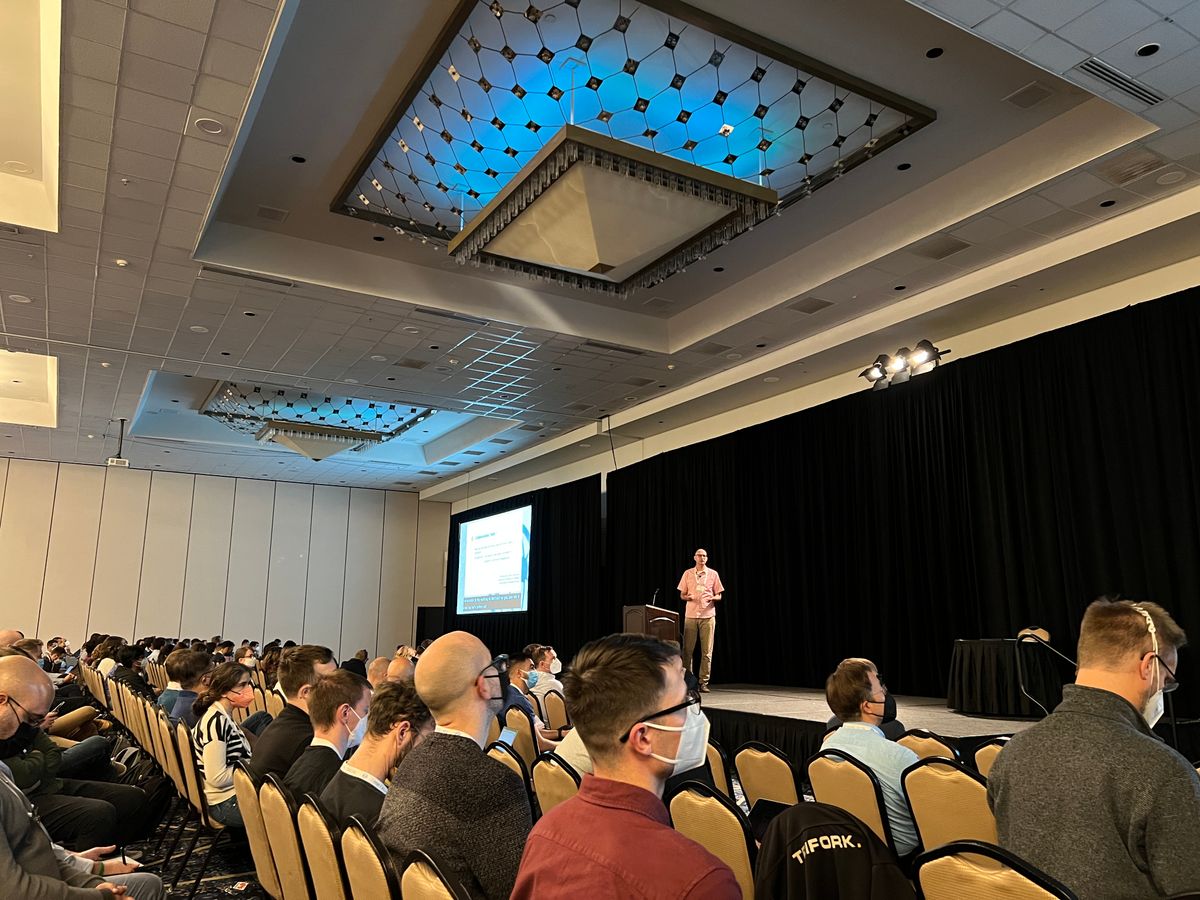
Last week I attended the 2022 ACM Recommender Systems (RecSys) conference in Seattle. My manager had reminded our team that Meta has a policy of being able to attend one conference per year (paid for by the company), and I was eager to learn more about recommender systems since I work on a recommendations infrastructure team for Facebook Marketplace. I was also very excited to have the opportunity to meet more people in industry after not having attended business conferences for 3 years.
Let's start with some photos.
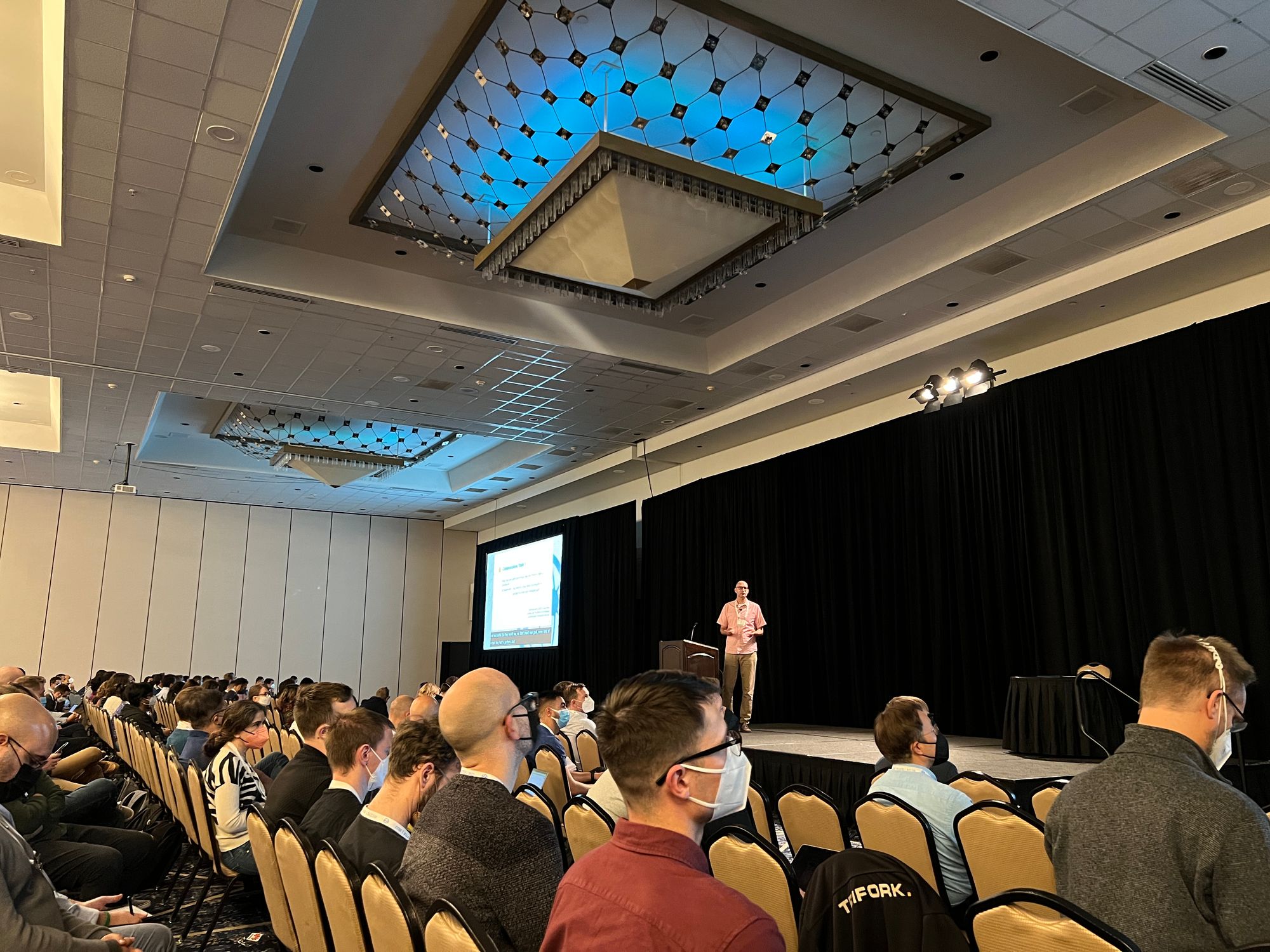
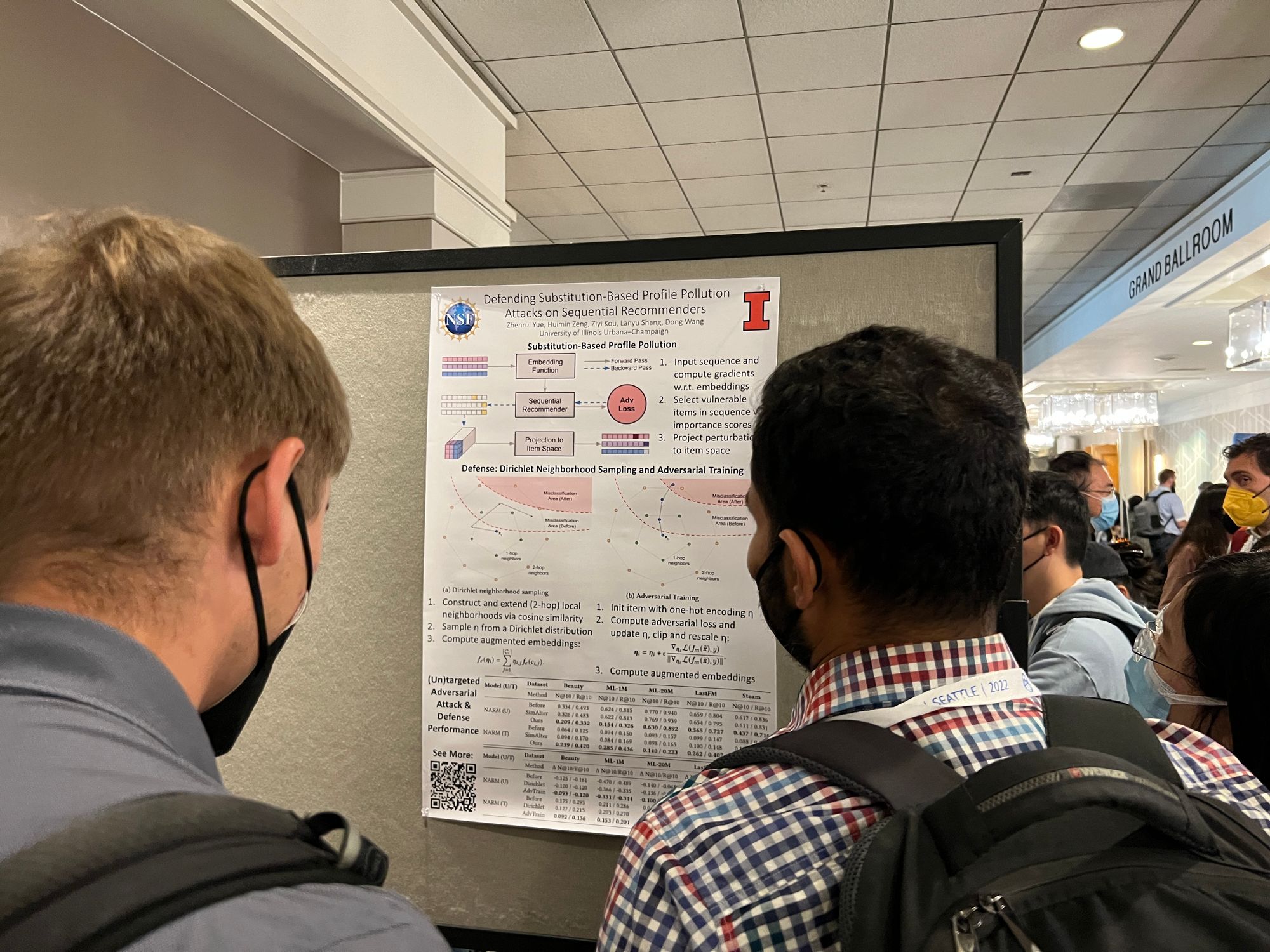
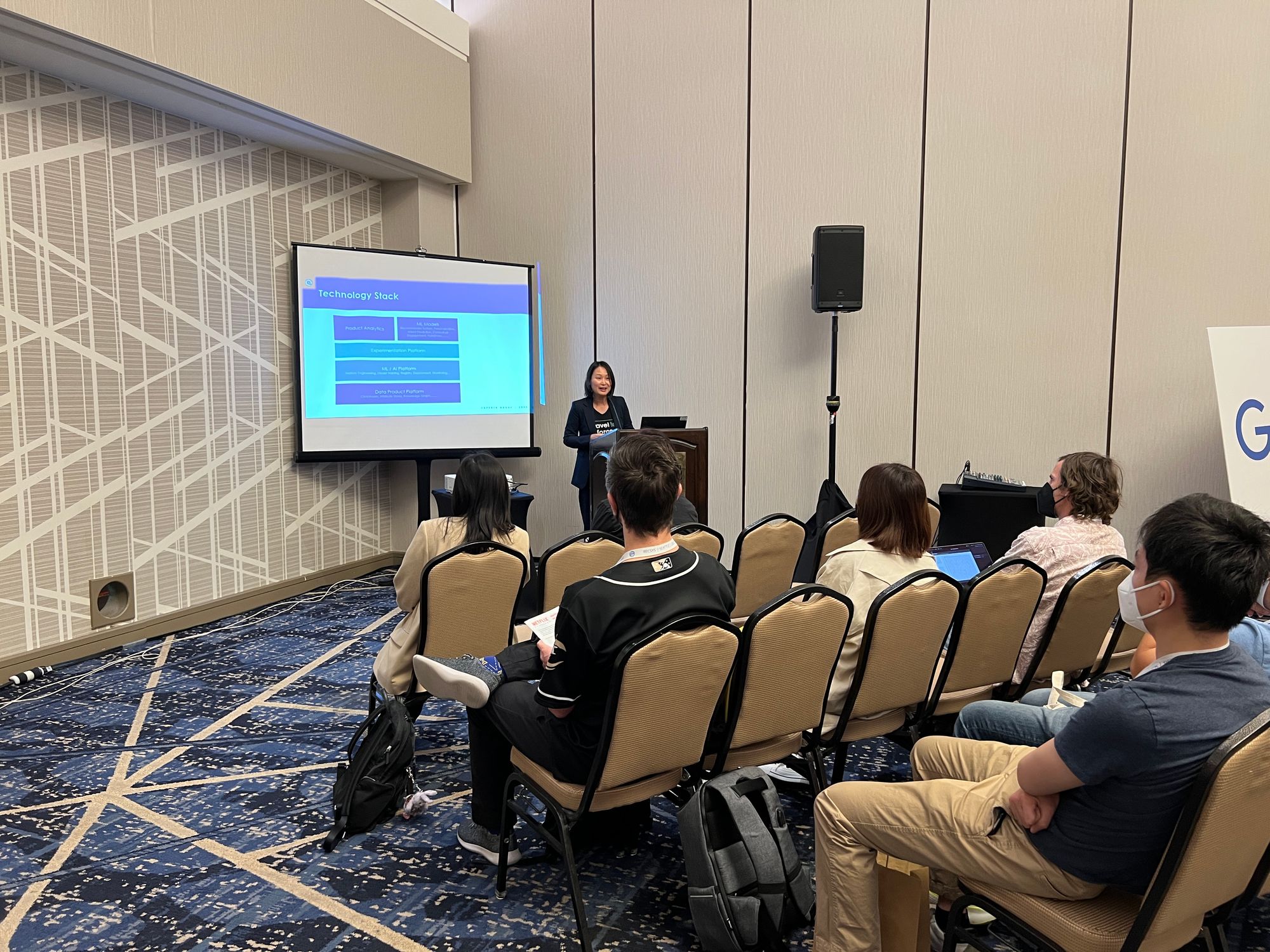
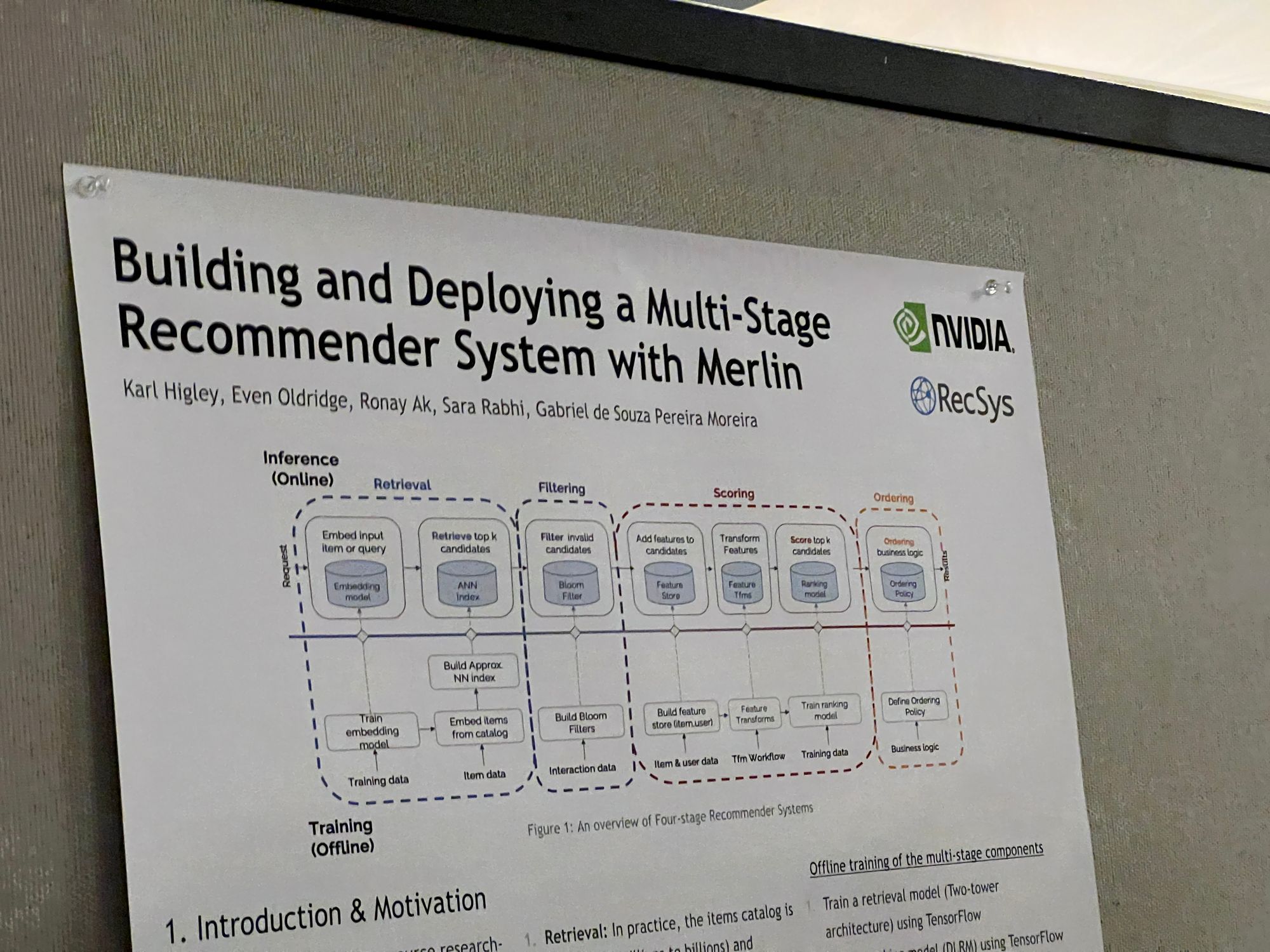
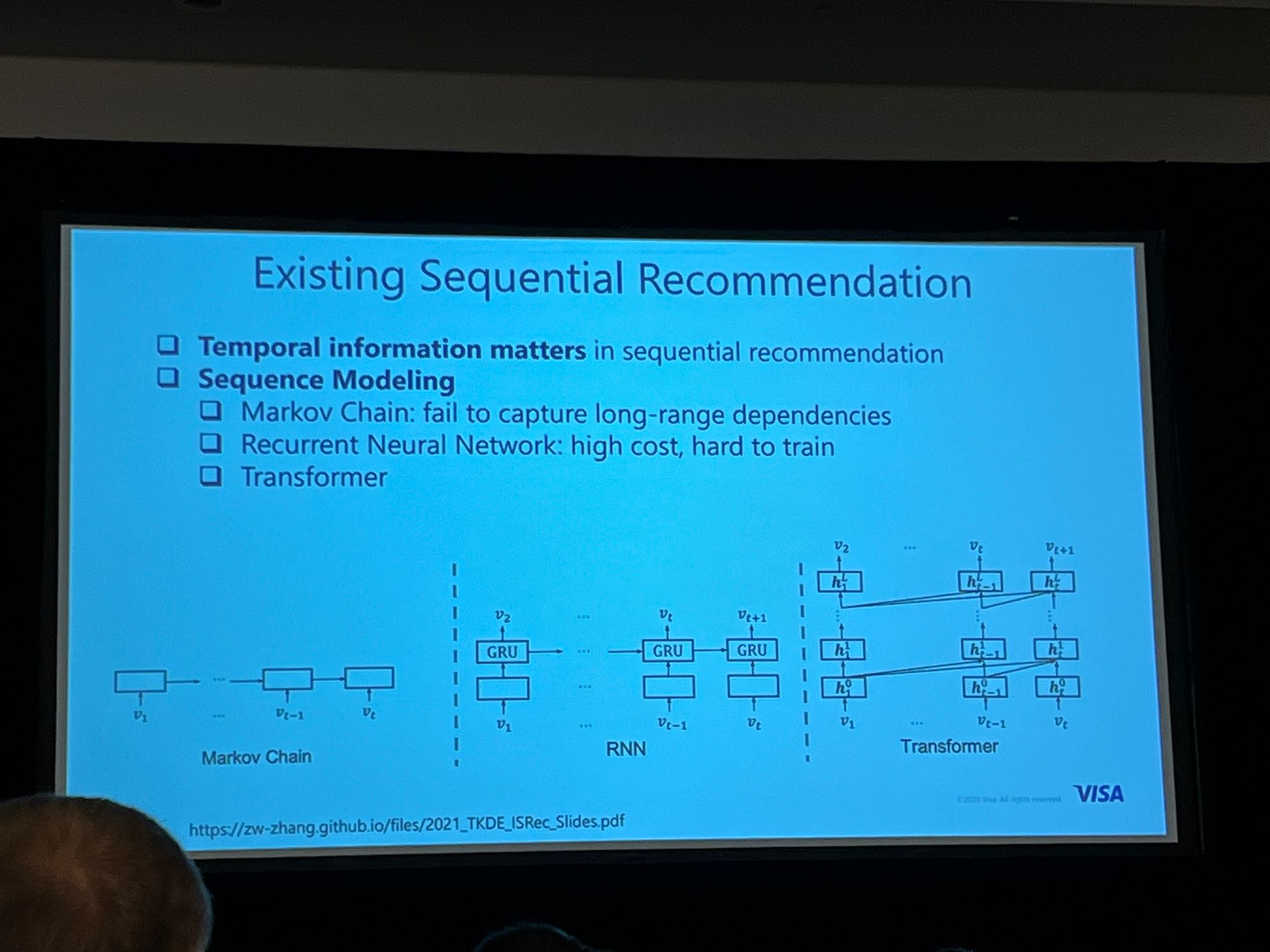
There were around 1200 conference attendees this year, which is the most RecSys has ever had. 500 out of the 1200 were remotely attending, and around 30-40% of the speakers were remote and gave presentations over Zoom.
Here are some of the things that I learned this year:
[Nvidia] Building and Deploying a Multi-Stage Recommender System with Merlin
- Nvidia has open-sourced a library for end-to-end GPU-accelerated recommender systems. Github: https://github.com/NVIDIA-Merlin/Merlin
- “Each stage of the Merlin pipeline is optimized to support hundreds of terabytes of data.”
- I wasn’t sure how similar their recommender system design is to our system, but from a high level I see how they also have retrieval, filtering, scoring, and ordering (a.k.a. ranking).
[Eindhoven University of Technology, Netherlands] Exploring the longitudinal effect of nudging on users’ genre exploration behavior and listening preference
- This was more of a psychology / consumer behavior study, and I found the results very interesting!
- Users of a music genre exploration tool are presented with an initial setting to have more personalized recommendations (similar to their listening history) or more exploratory recommendations (further from their listening history).
- The users who had the initial setting nudged towards more exploratory recommendations influenced their preferred personalization level.
- Perceived helpfulness of the recommendation system increased when users explored further away from their current preferences.
- I found this very intriguing because Marketplace also has some type of balance between recommending items that users have recently viewed, and Marketplace also shows some exploratory recommendations. This paper might have some findings for our product teams.
[Zillow] Taxonomic Recommendations of Real Estate Properties With Textual Attribute Information
- The Zillow search bar allows searching by tags/keywords. It is a much less commonly feature.
- Zillow Research created a hierarchical structure that enables multi-level categorization of search keywords. e.g. gym is child of “gyms and studio” which is child of “sports and recreation.”
- One of the main advantages of using the taxonomic structure is that the search results can show similar results, e.g. searching for “houseboat” might actually yield 0 results since it a niche category, so Zillow search also returns results for “waterfront” which is its taxonomic grandparent.
Other Learnings
- I met 2 TripAdvisor machine learning engineers working in Lisbon, Portugal. It seems that TripAdvisor is making some investments in Lisbon and pulling in talent from Brazil (also speaks Portuguese) and the U.K.
- Home Depot was a top-level supporter. I found it unexpected and also cool that Home Depot is making investments in their recommender systems. I am curious what types of ROI they are seeing/expecting with these investments.
- My coworker Chengyi also attended the conference with me. In his words, "I chatted with several engineers from Google, Amazon and listen to several discussion around poster, overall people are using similar approach / framework to solve the recommendation issue, such as Retreival-Ranking two stage, light path ranking, real-time signal, etc." He also noticed that end-to-end recommender systems latencies were within 200-300ms which is very good.
- RecSys 2023 will be held in Singapore: https://recsys.acm.org/recsys23/. 9/18/23 - 9/22/23. If anyone is interested in attending, I highly recommend it!



